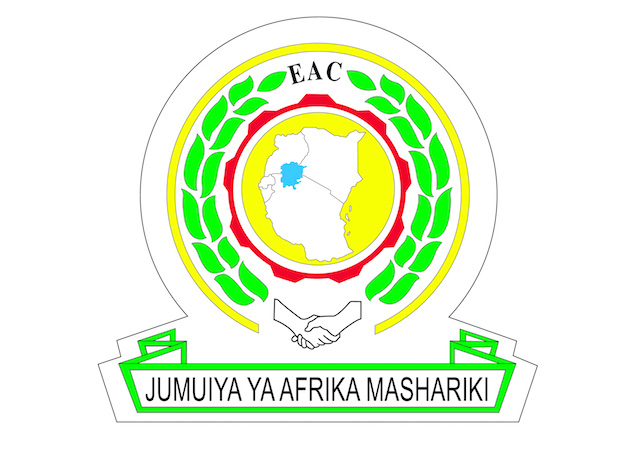
Proposed EAC Political Confederation meant to strengthen integration process
East African Community Secretariat, Arusha, Tanzania, 26th April, 2021: The proposed East African Community Political Confederation is meant to strengthen and fast-track the integration process in East Africa.
Justice Benjamin Odoki, the Chairperson of the Committee of Experts tasked with drafting a model constitution for the proposed Political Confederation further said that the Treaty for the Establishment of the EAC was not self-sufficient thus the need for the confederation.
Justice Odoki said that the idea was to strengthen the Community through a Confederation, which he pointed out was a transitional model to the Political Federation enshrined in the Treaty as the fourth and ultimate stage of the integration process.
Justice Odoki disclosed that under a confederal system, some kind of central authority would be put in place to guide policies and activities in the Partner States.
“We would like you as leaders to suggest areas of cooperation within the Political Confederation, the governing structure, modes of decision making, governance principles, the relationship between the Partner States and the Confederal Authority, and the funding mechanisms,” said Justice Odoki, who is also a former Chief Justice of Uganda,
“We would also like to hear your views on the mode of adoption of the Constitution establishing the Political Federation and any other issues that you feel ought to be addressed in the Constitution of the EAC Political Confederation,” he said.
The retired CJ, who was addressing a national stakeholders consultation workshop for delegates from Eastern Uganda on the Political Confederation Constitution in Mbale, said that the role of the Committee of Experts was to come up with a model constitution that would be presented to the Summit of EAC Heads of State for consideration and approval.
Welcoming the experts and delegates to the forum, Mrs. Edith Mwanje, the Permanent Secretary in the Ministry of EAC Affairs, Uganda, told the stakeholders that they had been selected to participate in the forum due to their diverse knowledge and expertise.
“The government of Uganda supports this process and values the views of its citizens coming up with a framework for putting in place the Political Confederation,” said Ms. Mwanje.
Participants expressed diverse opinions with regard to the political federation with some calling for it to be fast-tracked while others felt it should be adopted gradually. Those who felt that a political confederation should be expedited were of the view that it should be in the form of a federation with a president, a two-tier legislature and judiciary.
Those who felt that the region should move gradually towards a confederation said that the region should fully implement the Customs Union, Common Market and Monetary Union first before going for the confederal authority.
They said that East Africans were way ahead of their governments in terms of commitment to the integration process and were already cooperating in various ways at their level.
Delegates called for closer collaboration among Partner States in areas such as cooperation in peace and security, and infrastructure development as the region moves towards the political confederation.
On funding for the confederation, delegates were of the view that Partner States should remit their contributions to the confederal authority in time, adding that there should be sanctions against countries that default on their contributions.
They urged Partner States to take seriously matters touching on peace and security especially for citizens visiting countries other than their own.
Accompanying Justice Odoki at the consultations were the Deputy Chairperson of the Committee, Senator Amos Wako, among other experts from the Partner States.
The Committee of Experts has already held consultative forums with leaders in Mbarara and Kabale. The team of experts will also hold consultations in Gulu, Arua and the capital city Kampala.
NOTES FOR EDITORS:
The Political Federation is the ultimate pillar in the EAC integration process, being preceded by the Customs Union, Common Market and Monetary Union in that order.
The Summit of EAC Heads of State in May 2017 adopted a Political Confederation as the transitional model to the Political Federation. The Team of Experts was appointed by the Summit in February 2018 and is chaired by Justice Benjamin Odoki, retired Chief Justice of Uganda. Justice Odoki is deputised by Busia (Kenya) Senator Amos Wako, who is also a former Kenyan Attorney General.
The objectives of the National Consultations for the EAC Political Confederation are threefold:
- Enhance awareness on the ongoing Constitution-making process for transforming the EAC into a Political Confederation;
- Obtain stakeholders’ views on their interests and key issues to inform the drafting of model Confederation and subsequently a Confederal Constitution in line with the principle of people-centred regional community, and;
- Prepare the public in general to give their inputs into the draft Constitution once it will be drafted.
For more information, please contact:
Simon Peter Owaka
Senior Public Relations Officer
Corporate Communications and Public Affairs Department
EAC Secretariat
Arusha, Tanzania
Tel: +255 768 552087
Email: sowaka [at] eachq.org
About the East African Community Secretariat:
The East African Community (EAC) is a regional intergovernmental organisation of six Partner States, comprising Burundi, Kenya, Rwanda, South Sudan, Tanzania and Uganda, with its headquarters in Arusha, Tanzania.
The EAC Secretariat is ISO 9001: 2015 Certified
Tags: Political Federation, #EAConfederation, Political Confederation
